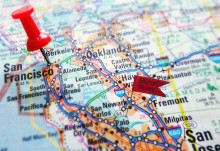Almost from its inception, the World Wide Web produced public anxiety — your computer was joined to a network that was beyond your ken and could send worms, viruses and trackers your way — but we nonetheless were inclined to give these earnest innovators the benefit of the doubt. They were on our side in making the web safe and useful, and thus it became easy to interpret each misstep as an unfortunate accident on the path to digital utopia rather than as subterfuge meant to ensure world domination.
Now that Google, Facebook, Amazon have become world dominators, the questions of the hour are, can the public be convinced to see Silicon Valley as the wrecking ball that it is? And do we still have the regulatory tools and social cohesion to restrain the monopolists before they smash the foundations of our society?
By all accounts, these programmers turned entrepreneurs believed their lofty words and were at first indifferent to getting rich from their ideas. A 1998 paper by Sergey Brin and Larry Page, then computer-science graduate students at Stanford, stressed the social benefits of their new search engine, Google, which would be open to the scrutiny of other researchers and wouldn’t be advertising-driven. The public needed to be assured that searches were uncorrupted, that no one had put his finger on the scale for business reasons.
Intrigued? You can read the entire article here


